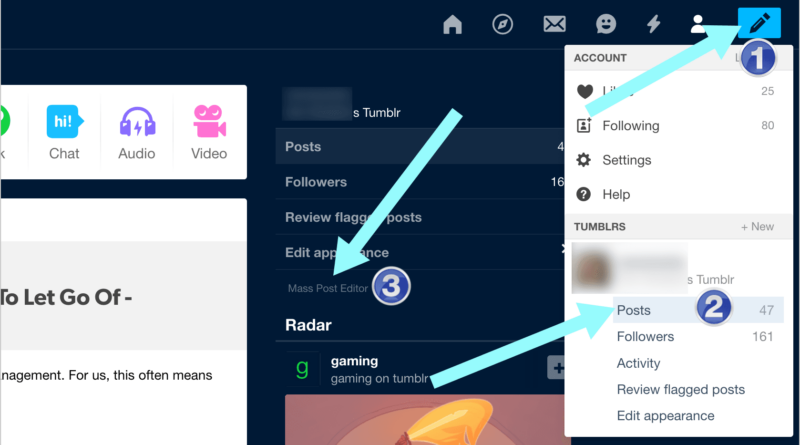Who Owns Your Social Media Content: How to Mass Delete Tumblr Posts, Tweets, Facebook Photos, and More
If you are a semi-active individual of any type of social networks site, you are most likely to add web content there regularly. Yet how simple is it to mass-delete that material? What if it backfires? How much control do we have over our own social networks updates?
In other words, that owns your social media material and just how simple is it to mass remove Tumblr posts, tweets, Facebook pictures and updates, Yelp reviews, Quora responses, articles on Reddit, etc?
Is it possible to quickly eliminate or hide your online identity in case anything fails?
The response to that is: Not fairly, sadly. While all social media sites verify that you are the only proprietor of the web content you put on the internet, concealing it from a spotlight may take days of job and in some cases it’s not doable in any way.
All social media sites sites work slightly in a different way when it concerns offering you manage over your updates. This chart will certainly offer you a better idea of all type of obstacles you might encounter when trying to mass-delete your social networks messages.
Just How to Mass-Delete Social Media Web Content You Own:
So That Owns Your Social Media Web Content?
As you can see from the graph above, sometimes your content might obtain life of its own when it on the web (e.g. Pinterest re-pins leave your control totally). And sometimes, your web content will remain on the website also after you erase your account (i.e. Reddit and Tumblr group blog sites).
Simply put, social media sites websites are not always ready to component methods with the web content that they claim you have.
Handling Misleading Web Content Ownership TOS
While you are the only proprietor of the material you upload to social media, all these platforms have virtually endless (i.e.” non-exclusive, around the world, royalty-free, transferable ) flexibility to utilize your content as they choose, including removing and distributing it without your authorization.
For instance, Tumblr permits itself a range of activities they can perform to your content and frankly declare they have best flexibility when it concerns changing it:
to use, host, store, cache, replicate, release, display (openly or otherwise), do (publicly or otherwise), disperse, send, change, adapt (including, without restriction , in order to adhere it to the needs of any type of networks, tools, solutions, or media whereby the Services are readily available), and produce acquired works of, such Subscriber Material …
Moreover, Yelp in their TOS says it as it is: There’s not always a good way to remove content from the website once you post it:
You alone are responsible for Your Content, and as soon as uploaded to Yelp, it can not constantly be taken out. You think all dangers connected with Your Material …
Social Network Content Possession is Simple … in Theory
Simply put, social media material possession is not as uncomplicated as it’s specified in the U.S. regulation which approves the copyright of all copyright to the creator by default, also if they don’t have a copyright case on file.
That being claimed, once you put your material out there, you rather blow up over it, in some type or one more, and that’s something to remember. Sarah Kornblet Waldbuesser, JD, is a lawyer for online business owners, believes this is the reality we require to approve:
For those concerned regarding ownership of web content on social media sites there are a couple of things to think about– and maybe the most essential one is approving that once things are out there on the Internet, you may very well loosened control and you need to be all right keeping that.
The very best way to control (and shield) your material is through
- 1 recognizing the Terms of the social media platforms you are utilizing (and being alright with those Terms)
- 2 shielding pictures with watermarks and copyright registration and
- 3 watching on it and policing for infringement.
The lower line is that social media sites systems are there to spread and share web content, it’s seldom in their benefit to control spread and they typically don’t unless they need to.
One way to shield your content is to use watermarks/logos on images so that its that a lot harder for somebody else to take credit. One more is to register copyright for pictures and content to make sure that if someone does utilize it without permission then you have the means to file a legal insurance claim, certainly, this suggests actually watching on your material which can be difficult to do.
There is no clear response to this inquiry, each person must evaluate the pros and cons of putting their material on social media and make the decision of whether it is worth it!
By Signing up with a Platform You Are Providing Control
Every one of the above platforms are extremely similar in this regard. Keep in mind that the majority of these systems allow various other individuals to re-use your public web content by re-blogging (Tumblr), re-pinning (Pinterest), re-sharing (Facebook and Quora), and retweeting (Twitter).
Nerushka Bowan, an emerging innovation regulation professional, legal innovation innovator and worldwide audio speaker, claims that you license a social networks system to use your content when you join it:
When you upload material on social networks, you are bound by the terms of the platform you make use of. The terms vary between the different platforms, and it is hard to track precisely what you can control on various sites. Frequently, when you create and upload material on any type of social networks platform, you stay the owner of that web content.
Nevertheless, it does not suggest that the platform does not obtain strong civil liberties over your material too. A lot of systems will have a certificate to use any content that you publish, in some circumstances consisting of for advertising and marketing functions, and in some instances, are enabled to maintain that web content even if you remove it off your personal page.
There is little that you can do when the platform you post on makes a decision to re-use or keep your content , although you are still the proprietor, due to the fact that you have actually accredited them this usage. However, with advancements in information personal privacy laws worldwide, more and more systems are encouraging individuals to be able to control the material on their web pages and do help in getting rid of content after deletion. This is not constantly a simple exercise, and sometimes after you “erase” an article from your page, it might stay on the systems web servers for a period of time prior to it has the ability to be removed.
If an additional individual duplicates your articles or re-uses your content in an unapproved manner, most websites enable you to make a problem against the infringing customer. If the system decides that the user is without a doubt infringing your web content, they will likely delete the duplicated material. In particular situations, some individuals are put on hold or perhaps banned, typically when they are repeat offenders. Nevertheless, if a person copies your social media sites material and re-uses that content on a various platform or “offline” and “in the real world”, the social networks platform will certainly not obtain entailed.
When the web content leaves the social media platform, the platform will certainly not take obligation or help. In these instances, you will certainly need to rely on enforcing your intellectual property rights using conventional lawful methods. One instance are the continuous instances against digital photography musician Richard Prince, who duplicates various other customers Instagram photos, makes minor changes to them, and afterwards puts them on canvas and displays in art galleries.
However right here’s what you can do :
Just How to Mass Erase Tumblr Posts, Tweets, Facebook Photos, and A lot more
Just how to Make Your Tweets Secured/ Personal
- Login to your Twitter account
- Click your account picture to the ideal
- Select “Settings and personal privacy”
- Click “Privacy and Setups” and enter your password
- Check the box next to “Protect your Tweets” and conserve adjustments
From currently on, only those you authorize will certainly get your old and brand-new Tweets. Your current Twitter pals will have the ability to see your tweets up until you block them.
Just how to Conceal Your Old Web Content on Facebook
- Log right into your Facebook account
- Click this web link and choose “Personal privacy” in the left-hand panel
- There click “Limit Past Posts”
- Now click the button “Limitation Past Posts” to verify
This will certainly override your previous privacy selections and limit all your previous content to your good friends only. If there are marked people in your old content, they will still see those updates, even if they are not your friends.
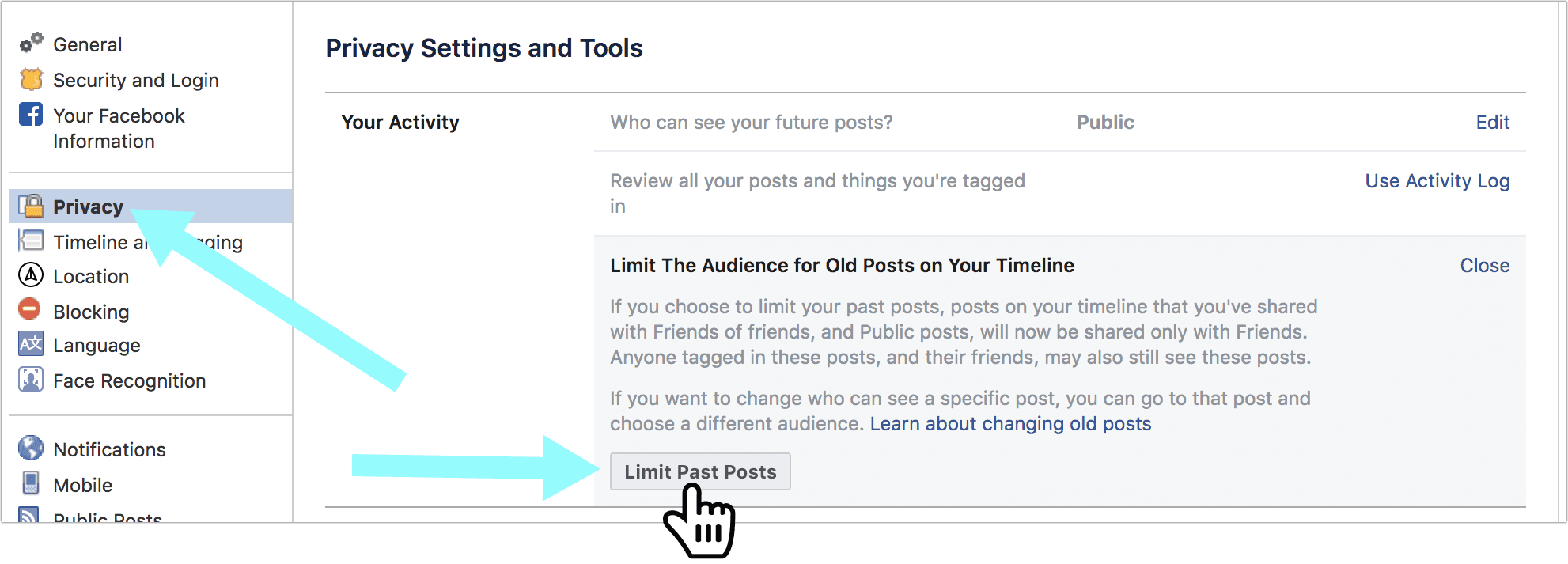
You can also edit or erase your articles, one at a time, using your Facebook Task Log.
Do not forget: When you remove or conceal web content on Facebook and Instagram, this might impact and restrict your link-in-bio page.
Exactly how to Mass-Delete Your Tumble Posts
- Login to your Tumblr account using any type of desktop computer internet browser and click profile symbol to the top-right
- Click “Posts” and there click “Mass Post Editor” to the right
- There you can click messages in a grid and click “Remove” switch to remove all selected articles
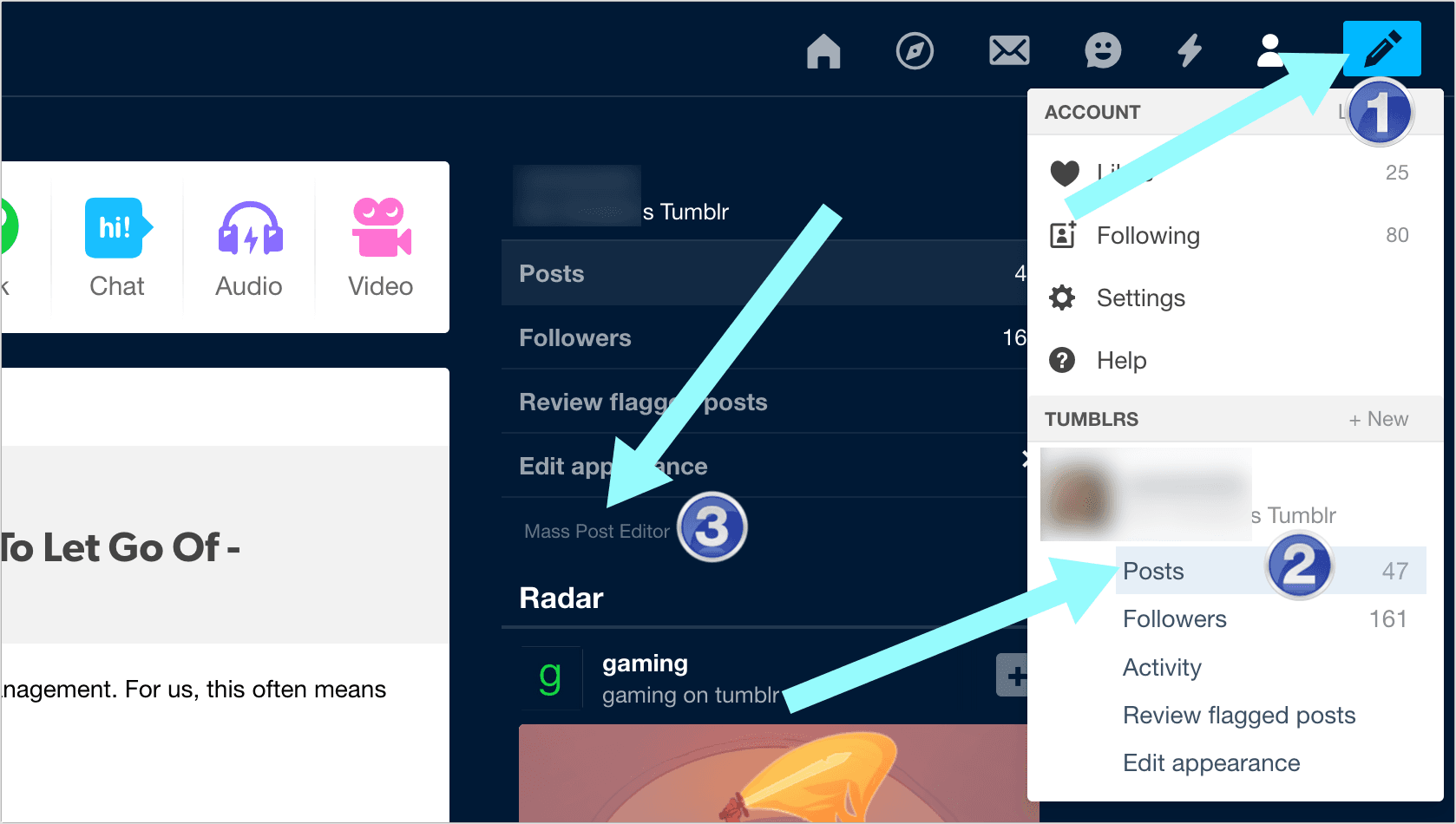
Just How to Mass-Delete Youtube Remarks and Videos
- Go to the YouTube Advanced Account Setup
- Click “Erase network”.
- Provide your Google account password related to this account
- Click “I wish to hide my network” to expand the area.
- Double-check every little thing and click the “Hide my network” switch.
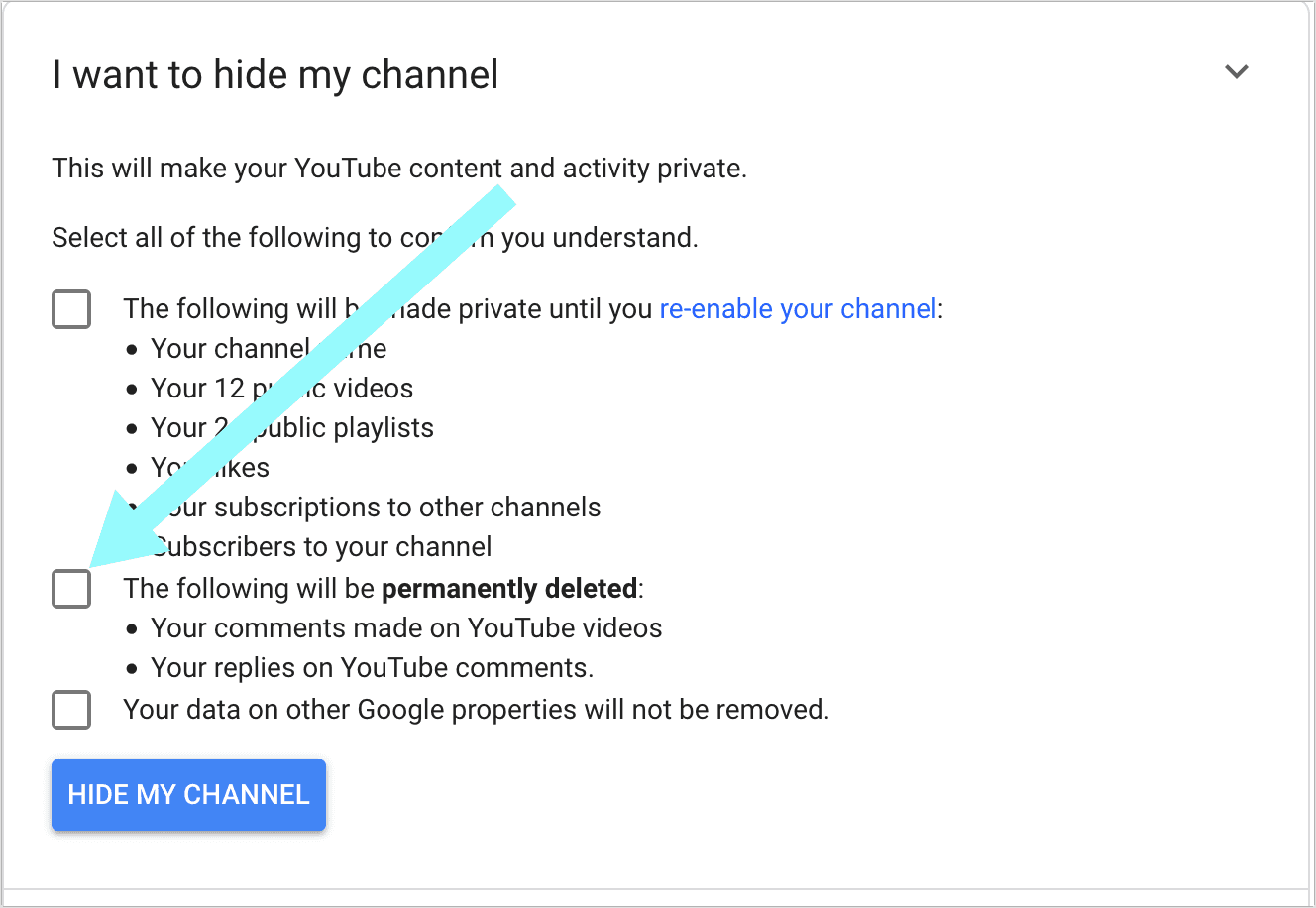
This will certainly delete all your remarks forever.
Exactly How to Mass-Hide Youtube Videos
You can likewise mass-hide all your videos utilizing Youtube “Workshop”. There:
- Click “Video clips” in the left-hand panel
- Examine the leading checkbox to mass-select all Youtube video clips
- Click “Edit” and there pick “Exposure”
- Select “Exclusive” to mass-hide your Youtube video clips
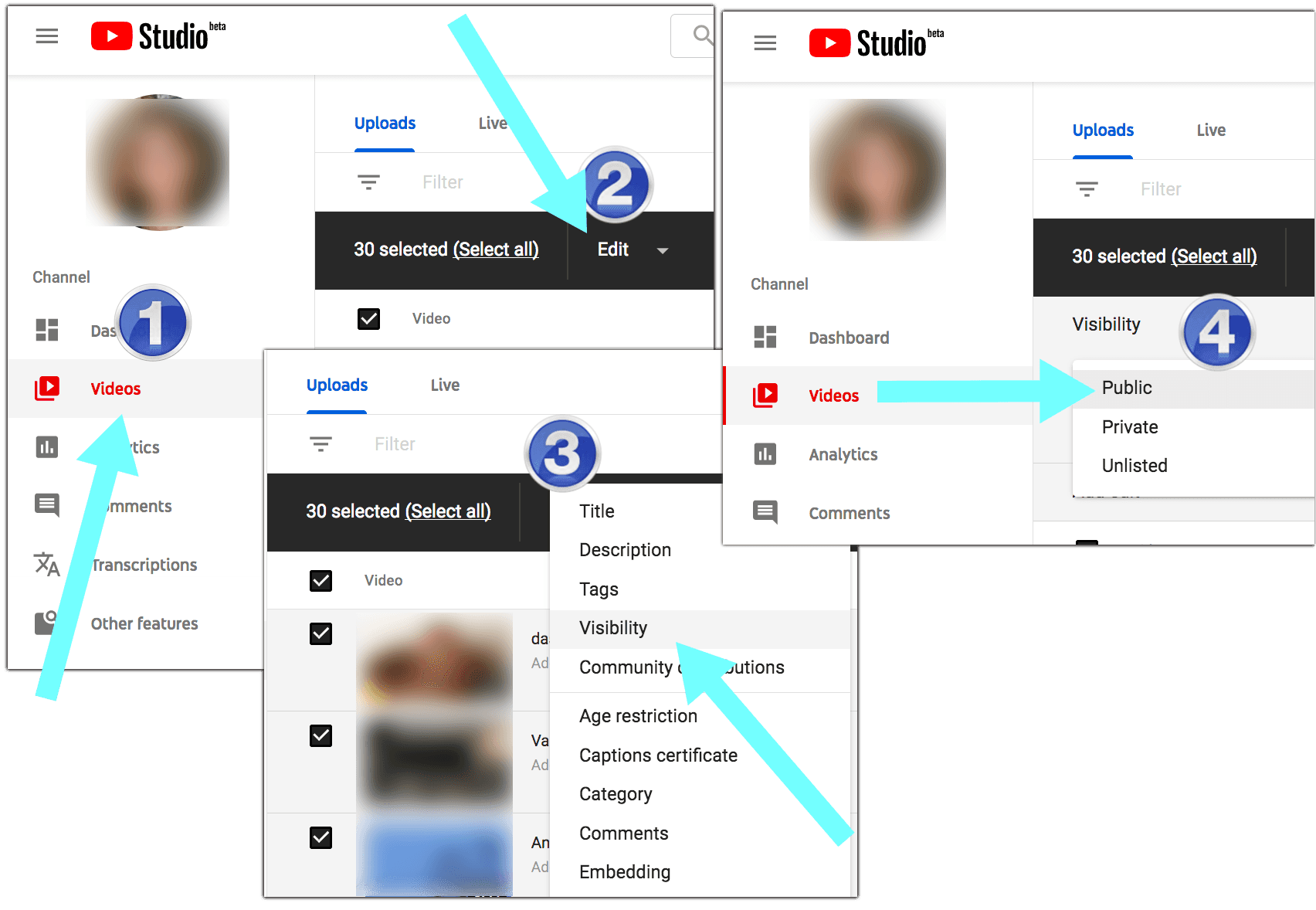
Professional Payment: The Future Is Brighter
Justin Hughes, the William H. Hannon Teacher of Regulation at Loyola Regulation College, LA believes this lack of control may change in the near future:
Initially, it’s valuable to recognize that all social networks have a motivation to keep every little thing that their customers upload because all this things forms a huge database of human experience– a database that can be useful for ‘large information,’ consisting of expert system algorithms using that data to enhance efficiency, whether acknowledging photos in images or recognizing feelings shared in sms message. So, a company might claim, ‘it’s important and why should I remove all of it as long as you aren’t identified?’
But I think all these techniques may transform if The golden state’s brand-new personal privacy regulation enters effect as intended on January 1, 2020 The brand-new The golden state Consumer Personal privacy Act of 2018 states that in 2020 “A customer will deserve to request that a business remove any kind of personal details concerning the consumer which the business has actually collected from the consumer.” And “gathers” implies “acquiring, leasing, event, acquiring, receiving, or accessing any kind of personal info referring to a customer by any means.”
So all right stuff you input and upload to Reddit, Facebook, LinkedIn, Pinterest, Instagram, and so on– that all comes to be individual data that the consumer can ask for be removed in its whole from the business’s systems.
Take Time to Clean up Your Digital Mess
Hari Ravichandran, owner of Aura, suggests tidying up your electronic mess often. This consists of:
- Resolve your privacy settings (particularly for those accounts that you set up years ago)
- Update your passwords
- Tidy up old and extra devices
- Tune up your internet browsers, etc.
Ultimately, if you use third-party or link in biography devices, see to it they are well-protected and encrypted. The loss of data frequently takes place from external tools you authenticate with your social profiles.
Final Thought: Better Informed Than Sorry
David Harley, anti-malware researcher and author, advises every person utilizing social networks web to review their regards to service and do some research:
The only logical suggestions I can give is this. Do not publish anything on social media sites (or the Web as a whole) if you would not be comfortable with its being spread everywhere. Obviously, not whatever that is released is shared or utilized inappropriately, but it makes sense to think that there’s an annoyingly high threat of such direct exposure and self-censor as necessary.
- What usage does a social networks system make use of the data collected from its customers (and undoubtedly from people are not customers)? Clearly, you should pay close attention to the service’s conditions, plans, and any other appropriate paperwork, before accepting share information that might be (and typically is) shown various other celebrations. And check whenever such documents is upgraded for inappropriate modifications.
- If the system’s plans (etc) appear appropriate, can you trust it to keep to those plans? As a whole, the response is no. There are a number of clear examples where a solution has actually either made unethical claims regarding exactly how rigorously it maintains its customers’ privacy, selected as well as several of the uses that are made by the solution or its companions, or fell short to observe its own policies with incompetence, bad security practices, or failing to interact properly with team, customers or clients. I discriminate in between consumers and subscribers considering that numerous are essentially marketing their non-paying clients’ data to companies who are their real customers.
- All that apart, can you trust your friends/contacts not to misuse things you publish? If the answer is yes, can you be sure they’re technically smart enough not to accidentally subject your data wrongly, for instance to people you do not understand? And can you trust close friends of friends/secondary contacts to take the same care that you get out of your friends?
If you want me to consist of any kind of other system to this guide, please article in the remarks!
